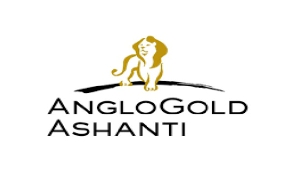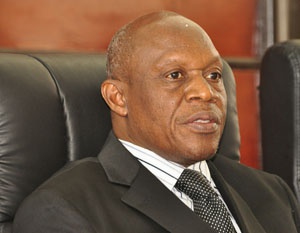Two decades after the then Ashanti Goldfields was acquired by South African multinational, AngloGold, Ghana is about to get back what used to be its biggest and most prestigious privately owned corporation.
Last year the company sold the last of its operational assets in South Africa to its rival, Harmony, and is now turning to Ghana for its growth going forward. This was confirmed formally as the company released its 2020 fiscal year results last week.
AngloGold Ashanti is the latest producer of the precious metal to unveil glittering 2020 results, driven mostly by the surge in prices last year as investors fled to gold’s safe-haven embrace amid the pandemic and global lockdowns.
Headline earnings for the year leapt to a very impressive US$1-billion from US$379-million the year before. Its dividend rose five-fold to 705 SA cents per share. Net debt fell 62 percent to US$597-million.
But far more important for Ghana and its investors is the fact that the company is returning its main mining operations to the country after nearly two decades of its being marginalized in the scheme of things.
The acquisition in 2002 reduced Ghanaian equity interest to a near insignificant single digit cumulative holding which has diminished even further since then as the company has struggled financially, thus forced to focus primarily on reinvestment than on dividend payouts, this discouraging equity investors in Ghana who have faced total lack of ownership influence as well as no significant forthcoming returns on their investments.
Consequently most retail investors and quite a few institutional investors have sold their holdings through the Ghana Stock Exchange and most trading activity in the company’s stock nowadays is done on the other Exchanges where it is listed.
At the height of its corporate history, the pre-acquisition Ashanti Goldfields was Ghana’s most prestigious, multinational, active in Ghana itself, Mali, Burkina Faso and Tanzania, and listed on the Ghana, London, New York and Johannesburg Stock Exchanges, with total annual production exceeding well over one million ounces from three mines in Ghana, one in Mali and the Geita mine in Tanzania.
Ghana’s position in the scheme of things reached a trough in the mid-2010’s. In February 2016, the company’s head of corporate affairs in Ghana was killed during a riot at its Obuasi mine, which was besieged by an army of artisanal miners who swept in after the loss-making operation had been mothballed.
AngloGold’s headline earnings for 2015 amounted to just US$49-million and much of its production base was found in South Africa. The company’s future at that time was decidedly not in Ghana. Indeed, its overall future and direction at the time were fraught with uncertainties.
The company today hardly resembles the one that existed five years ago, although its primary listing and corporate headquarters remain in Johannesburg — for now. AngloGold sold off its last operational assets in South Africa last year, including Mponeng — the world’s deepest mine with shafts reaching 4 kms beneath the surface of the planet — that is now in the hands of Harmony Gold.
The other tectonic change over the past half-decade has been the metamorphosis of Obuasi from a toxic asset that looked like a write-off to a key operation — almost literally a case of a mine being raised from the dead. AngloGold in 2017 announced that the illegal miners had been largely cleared from the operation.
A change in political climate under then-new president Nana Akufo-Addo was at play, paving the way for AngloGold to revive Obuasi as a mechanised mine with an investment plan of around US$500-million.
“The company aims to grow annual production from last year’s 3.05 million ounces to between 3.2 million ounces and 3.6 million ounces, by 2025. This growth will mainly include the ramp-up of the Obuasi mine in Ghana, and incremental improvements from existing assets in the next two years,” AngloGold announced a fortnight ago.
All this is effectively bringing the company back to Ghana where its flagship Obuasi mine will expectedly recover its once pre-eminent position as the most productive mine in Ghana and one of the biggest producing in Africa, although this time as primarily an underground mine coming after a century of open pit, surface mining.
In turn this holds the prospect of a complete revival of Obuasi township, huge new employment opportunities and a dramatic expansion of the gold mining value chain in Ghana, including manufacture and supply of production inputs as well as business support services from financial services to digital services, transport and the likes; more so than during the mine’s previous incarnation because of the local content regulations now in place.
There are more than 20 items which the mine used to source from abroad but which recent regulation demands should now be sourced locally. The latest rule changes further demand that not only should those items be supplied by enterprises domiciled in Ghana; they should actually be manufactured in-country as well.
Underground mining tends to be more expensive than surface mining but the combination of Obuasi’s rich gold endowment, the retention of major infrastructure from its previous incarnation and the ongoing gold price peak on global commodity ,markets will ensure profits level that will make shareholders happier than they have been over the past decade/ Besides the increased local visibility of the company will help restore much of the reputational glitter it used to enjoy in Ghana and this too will attract indigenous investors again,
Ultimately the situation can be expected to be even better for Ghana; eventually, AngloGold Ashanti’s majority owners and management will see a good reason to move its corporate headquarters to where its biggest and most important operational activities are taking place. It and when this happens, Accra will become the headquarters of one of Africa’s biggest corporations.’
Business News of Monday, 1 March 2021
Source: goldstreetbusiness.com













